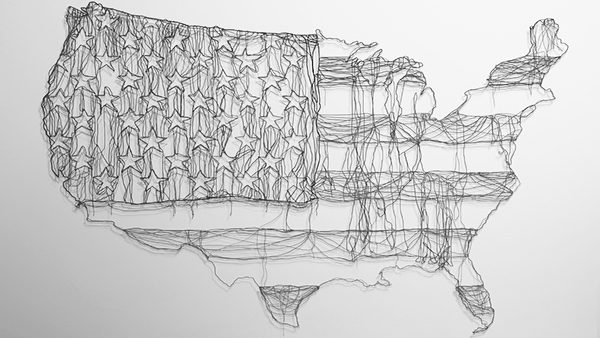Can my 'three powers theory' help explain why the Labour leadership contest feels so detached from reality?
Three powers theory (adapted from cultural theory) argues that successful organisations and societies manage to combine, and hold in creative tension, individualistic, hierarchical and solidaristic power systems. These combinations involve a contingent compromise (‘a clumsy solution’) between three worldviews/power systems which tend inherently to be antagonistic with each other.
In my 2013 annual lecture, I sought to explain why Britain, despite being a relatively rich and stable country, finds it hard to solve complex problems such as reducing inequality, preparing the young for the future and caring for vulnerable people. I argued that both hierarchy and solidarity have been weakened by aspects of modernity (changing attitudes, globalisation, technology) leaving us too dependent on individualistic perspectives and solutions.
From the three powers perspective, the global world view of the last thirty years (often referred to as neo-liberalism) is one in which a certain model of competitive individualism has been dominant. The legitimacy of hierarchy, in the form of the state, has depended on its capacity to serve individualism. Meanwhile various ideas of solidarity have been pushed into a marginal, oppositional position – exemplified by the rise of nationalist and far left movements.
This period contrasts with the post-war period of social democratic triumph (even where social democrats weren’t in power, their ideas were dominant). The major social and economic advances of the fifties and sixties resulted from the relative harmony between a model of individualism (big business), hierarchy (confident technocratic state) and solidarity (organised labour).
Ever since the right successfully repudiated the social market economy in favour of the ‘free market, strong state’ model best exemplified by Thatcherism, social democracy as a way of interpreting and acting has been weak and unstable.
Instead of the core social democratic contention that progress could be achieved through hierarchy hosting a balanced accommodation between solidarity and individualism, the democratic left has either accepted the hegemony of individualism while trying to smooth its sharpest edges (Blair, Schroeder) or has endeavoured to use hierarchical power to dethrone individualism in favour of egalitarian solidaristic values (Labour in ’83, Mitterand’s first years, Syriza and Podemos).
A problem with the accommodation pursued by Blair and Brown was that it required economic growth to enable both individualistic and solidaristic goals to be met. Since 2008 citizens have faced a starker zero-sum choice between two hierarchical offers, one leaning towards individualistic values and goals and one towards solidarity. At the last election they chose the former, plunging Labour into its current crisis and disorientation.
Following Ed Miliband’s partial assault on neo-liberalism, Party members feel they are now faced with continuing that unsuccessful approach, reverting to the Blairite strategy of accommodation or attempting a full-on reorientation of the cause to almost exclusively solidaristic goals. Echoing what has been occurring in Spain, Greece, France and the USA (to name but four), Party loyalists are choosing the anti-individualistic option, even though many of them know its chances of success are vanishing small.
The underlying problem is that all the leadership pitches focus only on aspects of the power system (accepting or confronting individualism, pursuing soft or hard solidarity) when to be interesting or credible they need to look at the whole system and the interaction of all its elements. Greater social solidarity can only be embedded in a new settlement if individualism is redefined and redirected and hierarchical power reformed and reconstituted.
For example, social democrats might argue that our idea of healthy individualism should be narrowed and widened: Narrowed in the Millian sense that the pursuit of market based self-interest must be balanced with the rights of all individuals to be able to pursue their aspirations; widened in the sense that our idea of what it is to be a successful individual should reflect a broader more humanistic account of personal fulfilment.
Equally, social democrats need to rid themselves of associations with a model of bureaucratic hierarchical control which is neither popular nor effective. While Geoff Mulgan is right to critique the naïve idea that big power is dead, progressives should be arguing for models of state power which are open and devolved and models of democratic leadership that are more authentic and engaging.
If progressives can articulate a model of hierarchical authority which shifts from control to enablement and of individualism which shifts from competitive materialism to the pursuit of what Unger calls ‘the larger life’, then the opportunity exists for new models of solidarity not only to flourish, but also to form part of a 21st century clumsy settlement.
Labour’s members are probably right to seek a radical change of direction, but their debate is focussing on one variable when what is needed is a completely new social equation.
Related articles
-
The public are ready to go further and faster on net zero
Anthony Painter
The public are ahead of policy-makers and, indeed, most of the business world. COP26 is an enormous opportunity to catch up. Global leaders should take it.
-
Can progressives ever stop the in-fighting?
Matthew Taylor
Biden's victory has caused the left and moderates to fracture again.
-
Can President Biden bring America together again?
Anthony Painter
There is a long road ahead for the new president.




Join the discussion
Comments
Please login to post a comment or reply
Don't have an account? Click here to register.
This blog by Matthew probes Labour's issues/potential quite significantly for me. It's not just selecting a new leader, it's transforming the party. Matthew's three powers theory is compelling and I enjoyed 'meeting' Unger. However, I would adjust the penultimate paragraph to say combine instead of 'shift' or perhaps marry 'individualism with the pursuit of what Unger calls the larger life.' Ditto with hierarchical control to enablement. I tend to be a realist. This is an individualistic age, but could it become one of empowered and enhanced-Unger style individualism and tempered solidarity. All of which needs a lot of thought. But back to the leadership election. A Centrist please, one who is experienced, having performed various roles, adaptable, new policy direction, new image, calm, flexible and responsive in debate. A change of gender too, I would say that, but it would be beneficial. We have strong politics and government presently, the UK is starting to thrive in various ways, now for the balance.